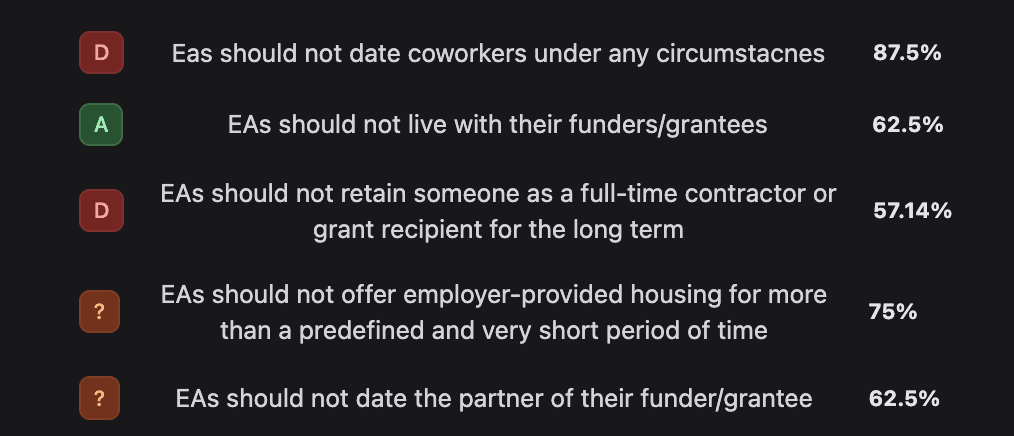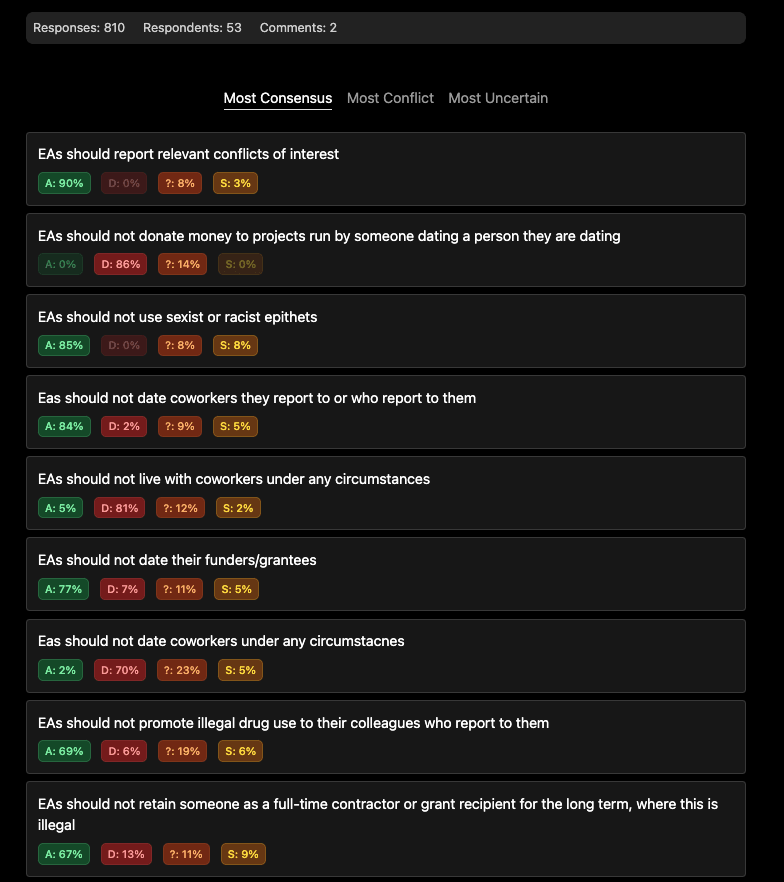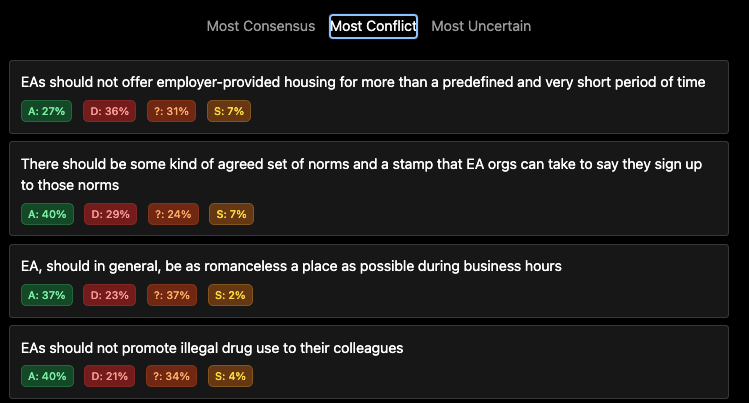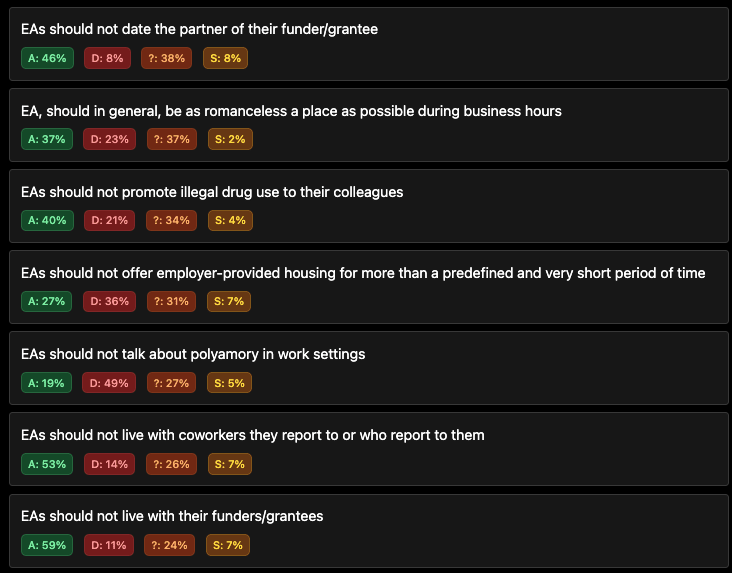There has already been ample discussion of what norms and taboos should exist in the EA community, especially over the past ten months. Below, I'm sharing an incomplete list of actions and dynamics I would strongly encourage EAs and EA organizations to either strictly avoid or treat as warranting a serious—and possibly ongoing—risk analysis.
I believe there is a reasonable risk should EAs:
- Live with coworkers, especially when there is a power differential and especially when there is a direct report relationship
- Date coworkers, especially when there is a power differential and especially when there is a direct report relationship
- Promote[1] drug use among coworkers, including legal drugs, and including alcohol and stimulants
- Live with their funders/grantees, especially when substantial conflict-of-interest mechanisms are not active
- Date their funders/grantees, especially when substantial conflict-of-interest mechanisms are not active
- Date the partner of their funder/grantee, especially when substantial conflict-of-interest mechanisms are not active
- Retain someone as a full-time contractor or grant recipient for the long term, especially when it might not adhere to legal guidelines
- Offer employer-provided housing for more than a predefined and very short period of time, thereby making an employee’s housing dependent on their continued employment and allowing an employer access to an employee’s personal living space
Potentially more controversial, two aspects of the community I believe have substantial downsides that the community has insufficiently discussed or addressed:
- EA™ Group Houses and the branding of private, personal spaces as “EA”
- "Work trials" that require interruption of regular employment to complete, such that those currently employed full-time must leave their existing job to be considered for a prospective job
As said, this list is far from complete and I imagine people may disagree with portions of it. I’m hoping to stake this as a position held by some EAs and I’m hoping this post can serve as a prompt for further discussion and assessment.
- ^
“Promote” is an ambiguous term here. I think this is true to life in that one person’s enthusiastic endorsement of a drug is another person’s peer pressure.





Some of these seem fine to me as norms, some of them seem bad. Some concrete cases:
Many startups start from someone's living room. LessWrong was built in the Event Horizon living room. This was great, I don't think it hurt anyone, and it also helped the organization survive through the pandemic, which I think was quite good.
I don't understand this. There exist many long-term contracting relationships that Lightcone engages in. Seems totally fine to me. Also, many people prefer to be grant recipients instead of employees, those come with totally different relationship dynamics.
I also find this kind of dicey, though at least in Lightcone's case I think it's definitely worth it, and I know of many other cases where it seems likely worth it. We own a large event venue, and we are currently offering one employee free housing in exchange for being on-call for things that happen in the night. This seems like a fair trade to me and very standard (one of the sections of our hotel is indeed explicitly zoned as a "care-taker unit" for this exact purpose).
This seems really quite a lot too micromanagey to me. I agree that there should be COI mechanisms in place, but this seems like it's really trying to enforce norms on parts of people's lives that really are their business.
Everything is a risk. The question is which things to track and how heavily to tax them.